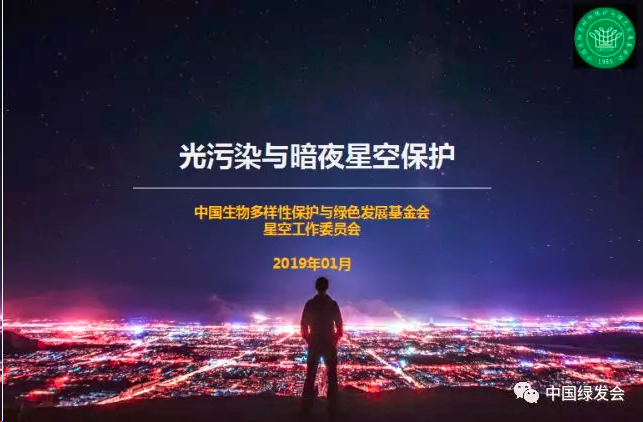China's annual Two-Sessions kicked off this week. Dubbed the "Two-Sessions", it includes the Chinese People's Political Consultative Conference (CPPCC), which is the country's top national advisory body, and the meeting of the National People's Congress (NPC), the top legislative body.
China encourages all-stakeholder's participation in environmental governance. As a national NGO and a national First-level society, the China Biodiversity Conservation and Green Development Foundation (CBCGDF) organises advisory meetings every year, to gather opinions from civil societies, grassroots, private sectors and all stakeholders, to seek for lawmakers' support to the Two Sessions. In the spring of 2019 before this year's Two Sessions kicks off, the national NGO has gathered more than 80 proposal drafts, dozens of them have been successfully submitted to the annual big event. Among this year's draft proposals from the CBCGDF, there is one on Light Polluiton and Dark Sky Protection. Today's Democratic and Legal Times reported the news that it's been successfully reflected to the top political advisory body.
Wen Xiangcai, a member of the CPPCC National Committee, suggested that laws be enacted to prevent and control light pollution. The proposal is based on a draft by China Biodiversity Conservation and Green Development Foundation's Dark and Starry Sky Committee.
As early as the 1930s, the concept of light pollution was put forward by the international astronomy community. Light pollution is a by-product of industrial civilization. Its sources include indoor and outdoor lighting, advertising equipments, commercial real estate lighting, factories, street lights, and stadium lighting etc.
Wen pointed out that with the acceleration of urbanization in China, urban lighting sources have increased rapidly in the past few decades to meet the needs of urbanisation's "image construction" projects. Over-lighting is a common problem in some areas. On the one hand, it is at the cost of huge electric energy, resulting in energy waste and air pollution. Plus, over-lighting and illumination affect living photophobic organisms and other wild animals and plants, change their habits and destroy biodiversity. It also affects the observation of the starry sky, and destroys dark-sky heritage.
Wen said that at present, there is no law in China that clearly stipulates light pollution. Environmental protection law only mentions light radiation, and some technical standards for lighting have been issued by housing, development and reform departments. However, light pollution has not been paid attention to and effectively regulated due to the
lack of the basis and restrictive provisions of the upper law.
She suggested that a Law on the Prevention and Control of Light Pollution could be formulated by referring to China's previous legislative experience on noise pollution and solid waste pollution, and "light pollution" should be listed as an environmental element.
If such a Law can not be enacted in a short term, it is suggested that China's Environmental Protection Law (EPL) should be amended and the relevant legal provisions regulating the control of light pollution should be clearly written in the currect EPL. In addition, the provisions on light pollution control should be reflected in the amendments of the Air Pollution Prevention and Control Law, the Environmental Impact Assessment Law and the Circular Economy Promotion Law.
Wen also appealed to the State Council to study and promulgate the Regulations on the Prevention and Control of Light Pollution as soon as possible, to fill the gap in legislation of light pollution environment in China, and to strengthen the operability of the environmental management of light pollution prevention and control.
In her opinion, the management of light pollution environment urgently needs legal basis to support. At present, civil disputes brought by light pollution are increasing. If the legislation of light pollution environment continues to be blank, there is no legal basis for the protection of public environmental rights and social public interests.
New Report is available at:
http://www.mzyfz.com/html/1302/2019-03-06/content-1386150.html?from=timeline&isappinstalled=0

(Photo credit: CBCGDF)
By / Linda (v10@cbcgdf.org)
